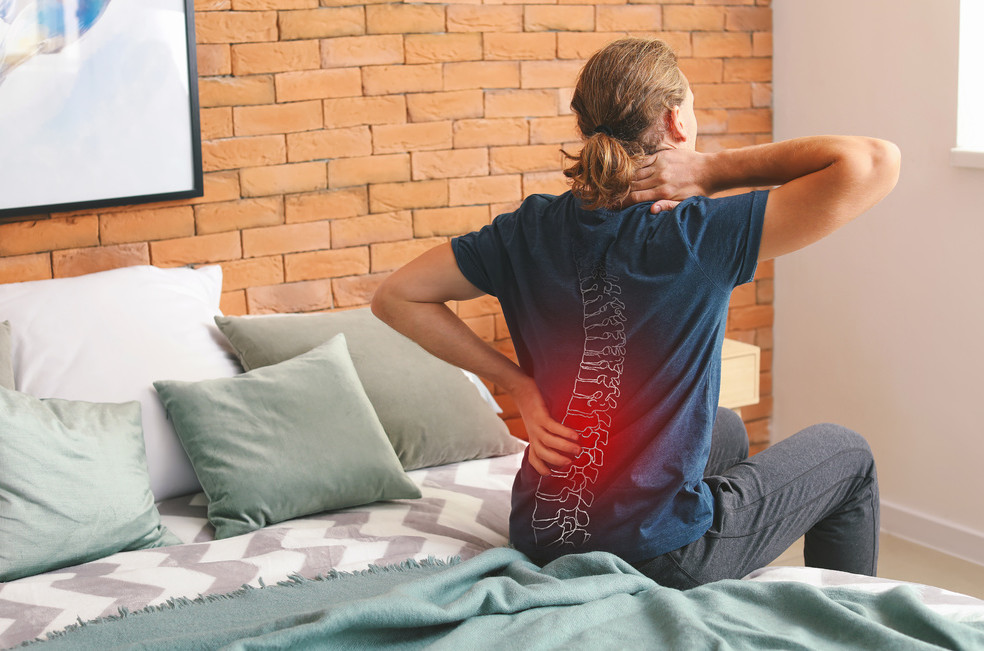
The term chronic or persistent pain refers to pain that persists beyond 12 weeks despite medication or treatment. After an injury or operation, most people can return to normal. There are times when pain lasts longer or comes on without any prior injury or operation.
Every person’s pain is different; worsening pain can come from various causes. Unhelpful thoughts, isolation, underdoing, and overdoing can all increase pain signals in the body due to stress, depression, anger, anxiety, or fear.
The constant discomfort of chronic pain can lead to anger and frustration with yourself and your family members. There can also be real effects on your mental health and day-to-day life when you experience this. But you can take control of your chronic pain and manage it.
You can make small changes in your daily routine that can often significantly impact the amount of suffering and disability you experience. You can check the list below of the things you can do to help you cope with chronic pain and live a better life.
Things You Can Do To Manage Chronic Pain
- Seek Help From Professionals
When it comes to health, the first thing you need to do is to consult a doctor. Healthcare professionals are your go-to experts for curing and managing illnesses and pain.
Your chronic pain may cause you to feel overwhelmed at a level that prevents you from performing your daily activities. You should consult a mental health professional, like a psychologist, to learn how to cope with its physical and psychological consequences.
You may also consult physical therapists and chiropractors or visit health centers, like White Pine Health & Wellness Centre, whose website you can visit at https://whitepinehealth.ca/physiotherapy-covered-under-ohip
- Maintain A Healthy Level Of Stress
The human body produces stress hormones when it feels threatened, causing anxiety and tension. When pain persists or is chronic, it can make you feel unwell. By learning how to cope with stress healthily, you can more effectively cope with chronic pain.
Several techniques can help reduce stress and promote relaxation. Having soothing, calming music in the background can lift your mood and make living with chronic pain more bearable. You can feel at peace when you practice mental imagery relaxation (also referred to as guided imagery). This means creating calming, peaceful images in your mind. Another technique for promoting relaxation is progressive muscle relaxation.

- Eat A Healthy Diet
The importance of a well-balanced diet can be seen in many ways, such as how it aids digestion, reduces heart disease risk, reduces weight gain, and improves blood sugar levels. Choose low-fat, low-sodium foods, such as fresh fruits and vegetables, dried beans and peas, whole-grain bread and cereals, low-fat cheeses, milk, yogurts, and lean meats.
- Make Time To Exercise
Exercise is one of the most common treatments for chronic pain. Depending on your current health, it may help reduce inflammation, increase mobility, and decrease overall pain levels. When you exercise, your body produces endorphins. Brain chemicals like endorphins help block pain signals and improve your mood.
Do take note, though, that you should be cautious about the kinds of activities you participate in if you have specific medical issues, such as diabetic neuropathy; your doctor may give you advice on the best physical activities for you.
- Seek Out Support
You may find it extremely difficult to deal with your pain daily if you are alone in the fight. Your first support system is your family and friends. Spending time with loved ones, whether in person or over video chat, can help people focus less on the pain.
You may also seek out people in the same position as you, who can share and understand your highs and lows. By searching on the Internet or in your local community, you can find support groups that can reduce your burden by helping you know that you’re not alone.
- Do Activities That Make You Happy
The more you focus on pain, the more unbearable it becomes. Find an activity that keeps you busy and keeps you thinking about things besides your pain instead. Taking part in activities you enjoy boosts your body’s painkillers. It’s a perfect time to learn something new or finally do things you are passionate about. Even though you might not be able to fully escape the discomfort brought about by chronic pain, you can still live in control and have fun.
Final Note
Even though it may seem impossible, you can enjoy life to the fullest while experiencing chronic pain. Aside from consulting and seeking help from professionals, doing activities that make you happy, spending time with family and friends, eating a healthy diet, exercising, and maintaining healthy stress levels can make such a big difference.
–



